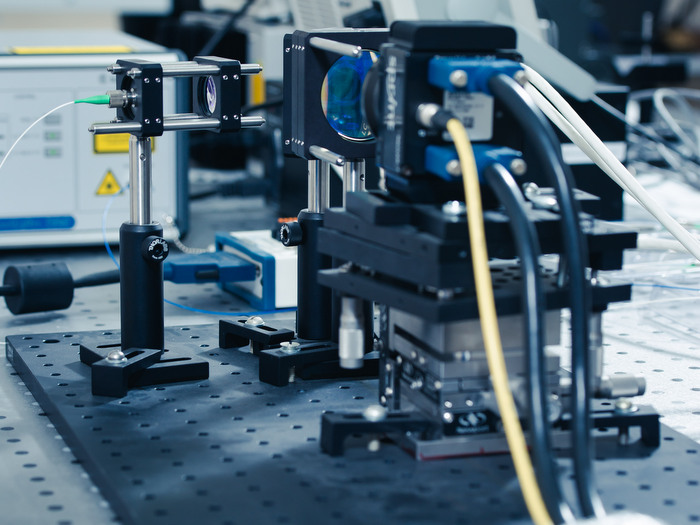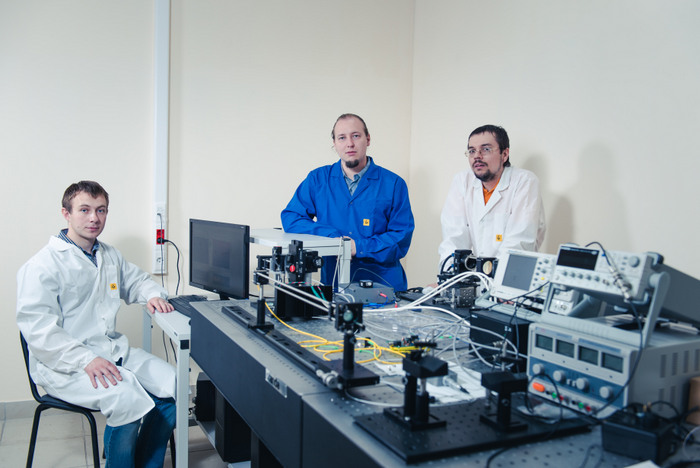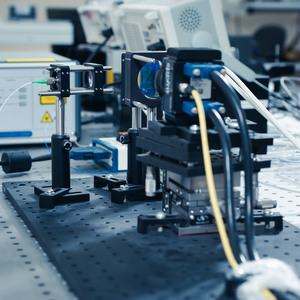Samara National Research University, Samara State Medical University (SamSMU) and Samara Regional Clinical Oncology Health Centre (SRCOH) scientists have worked together to develop a rapid optic-based diagnostic cancer instrument.
This instrument is needed because of the rising number of annually detected cancer cases both in Russia and throughout the world. The severity of treatment is exacerbated in this case by the late turning to care because the world lacks effective early cancer diagnosis methods during preventive measures.
The method of optical analysis of biological fluids, proposed by the Samara University scientists, together with the specialists from SamSMU and SRCOH permits the natural oncological bio-markers to be determined in the human biological fluids. This could be blood, urine or saliva, however, the developers plan to adapt the instrument for saliva as the simplest and most convenient method for rapid diagnosis. The advantages of this development are non-invasiveness, speed and economy of the diagnosis.

The new instrument uses technology from Lab-on-chip. This is a miniature device which combines an entire set of nanotechnologies and permits one or several multi-stage, comprehensive analyses. Based on the preliminary assessments of the Samara University scientists, the instrument’s dimensions will be comparable to an ordinary Smartphone. Diagnosis will take several minutes. The biological fluid sample taken from the patient will be placed in a vessel inside a chip, where the biological micro-fluid particles will be sorted and simultaneously undergo spectral analysis using miniature fibre-optic lasers.
“The instrument we are working on is very complicated. It combines technologies on the junction of optics, biophysics, chemistry, biology, medicine and nano-engineering, therefore specialists are working on the instrument from different specialties of various departments of our university, oncology departments of SamSMU, and specialists from PSUTI, who are developing a special optic fibre for the device detector. We should combine all of these technologies into one chip that will then be used for diagnostic purposes”, notes the Associate Professor of the Department of Laser and Bio-engineering Systems, Ivan Bratchenko.
The new development was presented to the scientific community at the recent Chinese conferences SPIE/COS Potonics Asia 2016 and 2016 International Conference on Laser Applications in Life Sciences by Ivan Bratchenko and the assistant from the Department of Laser and Biotechnical Systems, Oleg Myakinin.
The new instrument could potentially include developments from other Russian universities, in particular, research on giant combined scattering. This technology of surface nano-structuring permits a significant intensification in the optic signal and removes noises from it, correspondingly, increasing both the speed and quality of rapid analysis. Preliminary agreements on cooperation in this field were reached during past conferences.

Research by the Samara University scientists was conducted in close cooperation with SamSMU and SRCOH. Introduction of such an instrument into clinical practice could bring early diagnosis of cancer to a qualitatively new level.
The first experimental sample of the instrument will be ready in early 2017, after which there will be experiments and tests of the instrument in clinical trials. Based on the instrument test results, there will be optimisation work, followed by final patenting and introduction into Russian clinics. The Samara University scientists are also working to apply this technology in the diagnostics of other serious illnesses.

 Research by the Samara University scientists was conducted in close cooperation with SamSMU and SRCOH. Introduction of such an instrument into clinical practice could bring early diagnosis of cancer to a qualitatively new level.
Research by the Samara University scientists was conducted in close cooperation with SamSMU and SRCOH. Introduction of such an instrument into clinical practice could bring early diagnosis of cancer to a qualitatively new level.

 Research by the Samara University scientists was conducted in close cooperation with SamSMU and SRCOH. Introduction of such an instrument into clinical practice could bring early diagnosis of cancer to a qualitatively new level.
Research by the Samara University scientists was conducted in close cooperation with SamSMU and SRCOH. Introduction of such an instrument into clinical practice could bring early diagnosis of cancer to a qualitatively new level.